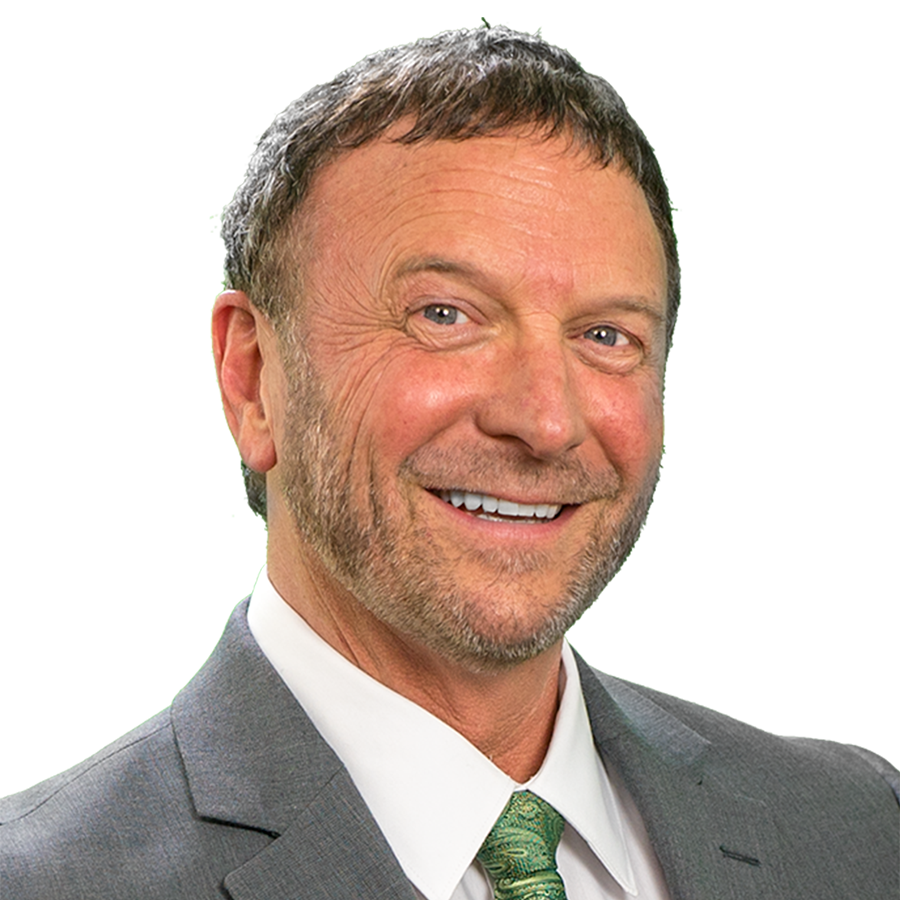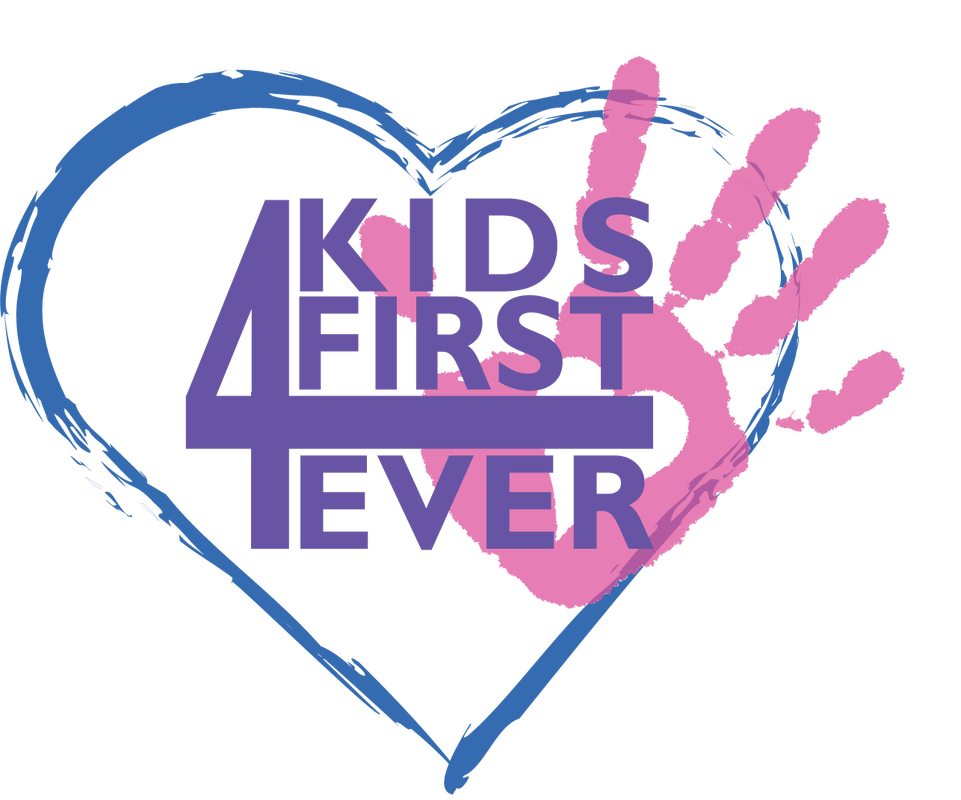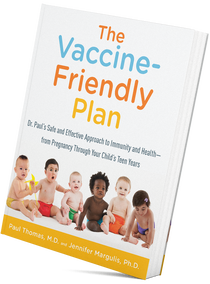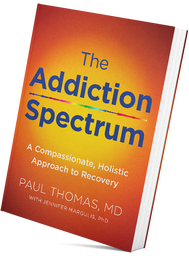PDF:TEXT:Dr. Paul 0:00
Dr. Paul Welcome to against the wind doctors in science under fire. I interviewed Dr. Monique Robles. She is a pediatric critical care specialist and a bio ethicist. We talk about the weaponization of the medical establishment, the serious consequences of these mRNA injections. She also serves as a medical witness supporting parental rights and folks that's hard to come by. He has put together a whistleblower report this airs on America out loud weekly. We've got a closing message for parents about COVID vaccines and vaccines in general Bernadette closes out the show with what you do when you go to the state capitol and talk to senators and politicians. And she covers some vital information we all need to know about these lobbyists who are filling these halls. Very interesting information. Enjoy the show. Dr. Paul, coming to you from the heart. I'm calling this segment Love is the reason. And I have a story that was incredibly impactful to me. Just this past week, while at the Oregon coast, at my house there. There was a knock on the door at about 1115 at night, I was just getting ready to go to bed. And a neighbor was saying, Did you know the house down the street is on fire. And so we walked out. Take a look at this and this home was completely engulfed in flames. I mean, the sparks were flying 100 200 feet into the air. This is a forested area on the Oregon coast and trees all around. And the first thought to me was this neighborhood's going down, we need to evacuate. So what do you take in a split second, when you've got maybe a minute or two, grab cell phones, computers and got out of there. Long story short that next morning. We were drawn to go see what happened. And standing in front of a completely burned down home smoldering. Still a few flames in the ashes was a couple who that was their home. They had lived there for 50 years. They were in their early 80s. He was an artist, a musician, a writer, nothing backed up on the cloud. They lost everything. They weren't even wearing their own shoes, they had to leave in a split second in their pajamas. They didn't even take their keys or their wallet, everything gone. And they were standing there in complete shock. And I just get a chill thinking about what that must have been like to lose absolutely everything. The incredible thing about this experience was there was a sense of peace even in this state of shock that they were in. We were able to befriend them. We hadn't actually met this couple before, even though they'd lived there for 50 years, and helped them get a cell phone, some basic underwear, socks, T shirts, some of the basics. There was a love connection, and a piece about this whole thing even though they're starting from absolute scratch. And I was just impressed by the fact of what love can do. The fact that we're not alone, and we're called to be there for one another. There's this was a time of real darkness, I'm sure in their lives that despair that we saw that first day and yet there was a light in this darkness. And so I feel like it's a calling to all of us to be a light and to be love to one another. Welcome Dr. Monique Robles. It is such a privilege and an honor to have you back on against the wind. Thank you. It's good to be here. It's good to be back. You know, viewers may not know that. I get the pleasure right now of talking to somebody who's appear. You are an expert in the field of Pediatrics. But beyond that you are in critical care. I remember going through my training. I loved critical care, but boy, that's hard work and long hours. But the unique thing really beyond that is that you are a bio ethicist and a mom. So you bring all of this together, and you've got a powerful voice right now. I can't wait to hear what you're going to share with us. Maybe before I start asking you a few questions, just give me a what's on your mind today. Monique Robles, MD 4:40 Yeah, um, so Paul, we have chatted, I've recently been doing a sort of a series of articles on the attacks on our children. Really, that's what's happening in our culture right now. And I'm trying to decipher in my mind how all these attacks can be categorized because that's what we do. Medicine, right? We, we sort of put things into categories, whether it's systems or diseases or processes, but it helps us to understand things better. And so when I can categorize things, it helps me to go through a differential basically. So when I started thinking more about the tax on on our children in society, I began to, we have direct attacks, we tend to think about direct attacks that affect them. And those can be immediate, or they could be, you know, harmful, and potentially life threatening, but but not immediate. And then we have indirect attacks on children that come via typically removal of parental rights or sort of medical kidnapping that's starting to come to the stage. Yeah. Boy, you use the term which I just read in one of your blogs, weaponization of the medical establishment. And it was like, how perfectly put that that's what's happening. And yet I don't think most of our physicians are aware of it. Yeah, I don't think you're aware of it. If you don't, if you don't look for it, right. And you're you're so engrossed in what's happening in medicine, because you're a part of it, or you've trained and you have missed the periphery of what's happening. But really, if we look back over the years, medicine has become a weapon. It's been politicized. And we I think we can really see that that in the past, probably two and a half, what, two and a half, almost three years now, in what's happened with censorship, doctors not allowed to be doctors, doctors not allowed to take care of patients, how we know best, and how we can interact and treat each personal patient based on their disease processes based on many factors that the government doesn't know. They're not the medical experts. And so, yeah, it's and I believe that what's happening is that medicine is being used for purposes that never was intended. Yeah, we're not we're not healing people. Yeah. Why isn't that the truth? There's more. Dr. Paul 7:34 I've got a few years on you. And I've seen us veer away from the healing concept to it's all just diagnose and treat. And the more diseases we can have, the better it's more money. I don't know. It's crazy. On the indirect attacks, I just had an experience and mom came into my clinic today, I'm still seeing patients. I've got another six weeks before I relinquish my license and retire from that part of my career. But yeah, that's right. Yeah, I had a mom come in today, I was a follow up hospitalization for asthma. And the child was seven years old, never been asthmatic before had a sudden severe attack, you would understand this because if she wasn't in the ICU, she should have been she was on a continuous NEBS for several hours, SATs that went as low as the 70s. And, but responded thankfully, beautifully well, and ended up back in her room within 24 hours. And prior to discharge. They were going to vaccinate her this was a completely unvaccinated child. And then two nurses came in and did a head to toe skin examination. Because she, after she wouldn't vaccinate, the nurse said, Oh, and left came back with two nurses, and they did a head to toe skin exam. I mean, for those of you watching those things have nothing to do with the care of an asthmatic. And I think, reading between the lines, and I'd be interested in your thoughts on this, but I remember being in training, and we were always taught to watch out for child abuse, right. I mean, I in fact, I was a child abuse expert for many years. And one of the things you do is look for bruising and all of that, well, the hospital systems, and this was our best pediatric hospital in town. But hospitals in general, I think go a little far when it comes to securing the safety of the child, oh, this is an unmatched child, therefore they must be it must be unsafe, and then they take it to that next step. Monique Robles, MD 9:30 Elaborate, if you will, I think this ties into some of the things you're doing. Sure. It sounds like in the scenario that you just presented that it's looking for more evidence of abuse of the child when really based on the data that's coming out that there's not an abuse of the child but in the medical community or what we know is the medical establish Given how we've been trained, is that vaccinate, vaccinate, vaccinate, and that's the only way to go. And if a parent or a guardian questions that, then they must be, they must not be, they must not have the best interest of the child in mind. But the question becomes, have we had a dialogue with that parent to understand their rationale as to why the pupil have be will make decisions for reasons not just on the cuff? We make decisions we make conscientious decisions, because of our experience are? Dr. Paul 10:46 What's happened to other people that we know that, that maybe the nurses don't know. And so I think there's it's just understanding sort of the bigger picture where an individual is coming from? Well, and, and wouldn't it maybe even go a little further. So when I started medicine in pediatrics, I had no clue that there was a problem with any vaccine, I really believed, from the core of my heart that vaccines were safe and effective. I didn't know back then that that was a marketing slogan. All interventions have potential risks. And most interventions have potential benefits. But it's all about weighing those out. And so I think these parents, oftentimes, at least in my experience, because I have about a third of my patients who don't vaccinate at all, by their choice that come to my practice, because they've already done the research, they've already figured out they don't want to, and they're kicked out of other practices. You're absolutely right, they've done a lot of research, and they're not making that decision lightly. In fact, most of them are afraid to go to a hospital, because they're afraid of just this thing. They're gonna get child protective services involved. So this subset of people are sort of going underground. Monique Robles, MD 12:00 That's a great point. I love how you said that. It's all the slogan has been safe and effective. But we don't say that about any other medication or intervention, that it's 100% safe is basically what's implied, and that it's going to do its job with with no risk. You that's a that's a great point. And it is interesting, because it's true that a lot of these these individuals, if they do go quote, underground, then that makes them more of a target, right? It's like, Well, why didn't you bring in your child for this visit? Or why did you wait so long? Yeah, because it's creating an environment of fear when, when our duty is to take care of all of humanity, Dr. Paul 12:54 based on just the dignity of the human person, and not to judge, we make those decisions. And we we can make some judgments, the more we understand where for us, the parents are coming up from and then looking at just the child in general, the you know, what's the way? How do they interact? I mean, there's so many, there's so many things that we can look at, to get a big picture. Ya know, you're so right. I mean, you've got a happy, thriving child is developmentally on schedule, or advanced and making amazing eye contact. They're, they're just, you know, you see these kids who are so alive and interacting beautifully with their parents than on a single parameter. They're not vaccinating, you're gonna call them neglectful parents. It's exactly Yeah, exactly. So let's, let's pivot. Now, we talked about the direct and indirect attacks on our children, I think you have done some pretty clear writing and speaking about direct attacks, we're talking about end of life things abortion, euthanasia, assisted suicide, fill us in on what you see as some direct attacks that we need to become aware of as parents. Right. So we were very well aware of the abortion industry, and with the recent overturn of Roe v. Wade, and bringing those that decision back to the States. And it is it's a sad, it's a sad era in medicine to think that over 63 million children have been aborted since 1973. And, you know, the fight still continues, where, you know, there are some states that Monique Robles, MD 14:39 allow even up to term, the removal of a child from the womb euthanasia now euthanasia is not legal here in the United States. We do have physician assisted suicide in many states. But euthanasia is the act Fuel injection or administration of the of the life ending medication by the physician to the person seeking to end the life. But it is legal in a couple countries for minors. So we if you think of the Netherlands, and I believe this was first legalized in 2002. And then soon after Belgium, now there is a caveat. In the Netherlands euthanization of children zero to one is allowed. And then 12 and older. In Belgium, they run the whole spectrum of age. So there's no age limit. I did not know that in those countries, who gets to decide that this child can be basically killed? Right? So well, the decision is, if you think about children can't give the consent and especially if they're infants, there's there's no input, it becomes it comes down to the parents and the physicians based on subjective criteria. Really what you know, some of it, I guess, you could consider objective a child who has a, quote, terminal illness and not expected to live, you know, very long. So and they categorize those by what's known as the Gron engine protocol. And so those are for infants one and under, they sort of classify them, I believe there's five categories that they put them in those with immediate life threatening illnesses or diseases, those who are incurable. And so they look at the suffering of the child, but then I begin to question Is it the suffering of the child or this or the suffering that the community or the parents are going to have to endure and taking care of the child? So and then the minors 12 and older in the Netherlands, supposedly the children have some sort of say, and that they have been discussing in the Netherlands to also incorporate the one through 12 age range as Belgium already has done. Dr. Paul 17:25 I have a case when I was in residency, I was a second year pediatric resident. And I was at a hospital that had no attendings. And I was taking care of a really critically ill child in the ICU. Nobody else was willing to manage that child. And they were terminal. I mean, I started an IV on a thumb, you know, it's like, it's all that was left. And I remember the parents anguish and thinking, Boy, wouldn't it be? Wouldn't it be more kind to just let this patient, you know, succumb, which was the most likely inevitable outcome. And that was one thought. But I have another story that just like, whoa, gives me chills. So a mom, paramedic mom in the shower, her nine month old baby dies, in what we would term SIDS in the lingo of pediatricians. She comes out her baby is not breathing in blue and resuscitate this baby. She doesn't know if it was 510 minutes, something like that, since she had last been in touch with the baby. That little baby was in my practice until about age six or seven, completely stiff, vegetative. The MRI or CT scan of the brain showed nothing but brainstem, from what I can tell just a hollow skull, and that they were hospitalized two, three times for antibiotics because the parents still wanted to do everything. And then they moved away. They came back to our area when the child was about 13. Walking and talking. Yeah, well explain that. Oh, folks, sometimes, you know, there can be the tiniest amount of brain left and it takes over somehow now it wasn't perfect speech. And it wasn't perfect. ambulation it was very clumsy. But personality was there. There was there was a real human being there. It just sort of shows we shouldn't play god I guess. Oh, absolutely. God knows how to play God. Monique Robles, MD 19:30 Right God knows how to be God and that I think that just goes to show that Dr. Paul 19:37 we are only the instruments. There's a greater plan and and who knows how many prayers those parents said so. Yeah. So I'm gonna pivot to a more complicated topic of grave concern these days. What are your thoughts about I know you've thought about this and written a little bit about putting Initial deadly consequences of mRNA injections. Sure. You know, Monique Robles, MD 20:06 my concern really is just the just the product in and of itself is unlike any other injection or any other vaccine that we give to children on the immunization schedule. It's a whole new platform. And it was rolled out very quickly. The trials were meant, basically what we were told was effective was really manipulation. Just to get the, the products out. We've had the, you know, the the recent bombshell report that the from the Pfizer executive at the European Parliament say, Oh, we never, we never tested transmission, the decrease in transmission with these products, we had to get it out at the speed of science. So we know it's not a vaccine, it doesn't prevent transmission, it doesn't prevent the severity of disease. And and the the harms that are that are coming, there's no benefit to children. We know, we know that we've seen that for two and a half years, children do well, there's no benefit. There's only harm. And, and that in of itself is a fundamental principle in in medicine. And the the ethics of medicine is that first do no harm. And we are creating harm, and we're creating a population really of diseased. And and children are dying from these injections. So it's it's a grave concern I have. Unknown Speaker 22:00 Yeah, well put. Dr. Paul 22:03 It boggles my mind. As we speak, I think we're pre recording this ahead of time, as we speak, I believe the hcip is is discussing, adding this injection, like you said, we can't even call it a vaccine, it doesn't prevent transmission. It's basically without benefit. And especially in children, at least, it's all harm. And yet, I get the sense they will just rubber stamp this approve it, add it to the childhood immunization schedule. And that way the pharmaceutical industry will be forever protected from liability, all the harm and burden of the damage that this is going to cause falls on you the parents. Right. Right. So you know, the emergency use authorization gives them Monique Robles, MD 22:54 liability protection. But once it's on the immunization schedule, you're right, Paul, that's that's is a stamp that we can move forward. And we will continue to profit off of this and we won't be held accountable. And that's nowhere in medicine. Should we allow harm, and then no accountability. Dr. Paul 23:23 So as an ethicist, what can we do? Because we pediatricians have been silent too long, on this very issue that these medical products are forced on our children with no liability and no recourse in fact, if you have a damaged vaccine injured child, even if it might just be a vaccine injury, right? Sometimes you don't know. But your child was what one way totally fine. And then after the series of vaccines or this vaccine there, they're not fine. Pediatrics, pediatricians, we got to wake up Monique Robles, MD 23:59 there, you know, and I think there are many waking up. The concern is just is we're hard to find because we're being censored and silenced. And so that's why it's important to have these voices through the Children's Health defense. Through your show through organizations, like I said, with truth for health, it's important because these really are at the heart of taking care of humanity, and what needs to be done. So how is your career changed? Have you had any changes from when you were hospitalists working in the ICU? Oh, yeah. So so my position was terminated. Because I didn't receive one of these injections. So it has it had I've had to pivot into these advocacy roles. I'm a to be a voice. Not at the bedside right now. But a voice in the bigger picture of, of really so many of these attacks that we're talking about. Yeah. So you your career got derailed? Have you been challenged with regards to your license? Not yet. Okay, good. I'd say Not yet. And hopefully not as it shouldn't, it shouldn't be an issue. I've never had any malpractice or any. My license is clean, like my career has been clean. Because I, I take care of my patients. Yep. Yeah, I had a similar track record. But I, I'm in a state where Dr. Paul 25:48 that didn't seem to matter. And I'm a little too vocal, I was speaking out in front of the steps of the Capitol and things like that. And Monique Robles, MD 25:58 but that's a concern, because then it's, then we're going into constitutional rights. Unknown Speaker 26:05 Yep. Dr. Paul 26:07 So one of the one of the areas that I think parents have a really tough time is the legal side, once the system has come down upon them, let's just say it could be Child Protective Services overreach, or it could be they're somehow in trouble with a custody issue where one parent has custody and wants medical freedom to maybe let's say, not do a vaccine, and then the other parent sort of gets the upper hands just simply because they they're going to follow the CDC schedule. And this gives them power, because that's the, quote, right way to do things. Monique Robles, MD 26:48 I understand you're, you're now able to be a medical expert. Witness? i Yes. i started, at least putting myself out there. On a couple of cases, I did do some did write some medical experts statements, for even international courts on some bioethics, bioethics issues. But of recent, yes. Including custody cases where one parent wants an injection, another parent does not. And to be a voice for the child. Most, especially when I know and we all we know, the risk and no benefit from these current injections. Yeah. Dr. Paul 27:43 Thank you, by the way for doing that, that is a big void. It's just so easy to go out and find 1000 pediatricians who will just say the party line vaccines are safe and effective. If you don't do them all, you're a bad parent. And as you point out, it's it's so much more complicated than that. So we desperately need people like you Monique Robles, MD 28:06 willing to step into that spot and speak out for the children. We are you're right, we're advocates for the kids. And, Paul, it's interesting that you say that, because you're right. So many will say the party line, but the party line doesn't have data doesn't have the data to support. And so that's my hope is to bring evidence, the data that supports the rationale to not inject these children, and it's it's out there. Dr. Paul 28:37 But the mainstream media doesn't want it to be out there. And so they won't put it out there. Yeah, you're speaking to the fact that there are over I think it's now over 13. Now, 1300 reports in the peer reviewed literature, folks, this is the gold standard, supposedly, which is not as good as you think it is. But there are that many over 1000 reports of harm published in in the top journals coming from the just the COVID jab. But what the other side does is, you know, is the tobacco science sort of approach and farmers, especially around vaccines, but they've done it for almost all medications, they just dump out massive amounts of poorly done studies that show whatever they want to show, and they fund it, they publish it, and then you go to court and the other side pulls up, you know, 10,000 studies, and you only have 1000, or in the early days, we had very few because it was a brand new thing. Right? And it's and I think the difficulty comes in trying to refute all of that garbage. Right. I mean, that's what it essentially comes down to. Monique Robles, MD 29:54 Especially when it goes along with like you said, what's what the party line is? Dr. Paul 30:01 Yeah, absolutely. Tell me a little more about the truth for Health Foundation. I think you guys are launching a pediatric report and as part of the whistleblowers initiative, yes, you got it. So Dr. Vleet, had, she has a her own station or own our recording with America out loud. Monique Robles, MD 30:22 And there was a need for the noon hour, Monday through Friday. So she developed the series is called the whistleblower report, and really looks at all of the problems that are occurring, whether it be a medicine or military government, that that we need to be aware of, that are happening. And one of those is the pediatric report, where we are showcasing really what's happening inside pediatrics, and particularly these attacks that are happening on children, and allowing parents to hear this, to give them information so that they're empowered Dr. Paul 31:16 and knowledgeable, so that they can move forward and make the best decisions for their children. We want to provide that evidence and support. Absolutely. So people can go to America out loud and noon hour Monday through Friday. It sounds like this is a a important place to get good information. Right. That's the whistleblower report. And there will be different report each of those days, but we're trying to have our voice weekly on one of those hours. So fantastic. Good for you. So I think for you if I'm not mistaken COVID was the real wake up call. Is that true? When it comes to questioning a vaccine? Suppose it vaccine? Yes, yeah. Monique Robles, MD 32:01 How did you end up getting the vaccine yourself? No, you said you didn't? How about other family members of yours? My No, I we're not we're I advised. And my parents, rightfully so. And I advised people not to, not to get it. And thankfully, there was a you know, there was some listening. Dr. Paul 32:25 So I'm going to share a funny story based on just you and I in that situation. So I go to my parents. And I tell him, mom, dad, this one, this is not a good vaccine, you really need to stay away from it. They got it anyway. And as now they're not getting the boosters. So I finally got through. But when it was early on like that, and they're living in retirement communities, and they're here, they watch the news faithfully, you know, CNN and all of it, right? Liberal Democratic background, so they don't get another perspective. And I come from that background. So if you if that was our background, we buy in that these news agencies are telling the truth. In fact, my mom even said to me, Well, Paul, how can you be right? When you're the only one? Nobody else is thinking the way you are? And the first time she asked me, I was just like, really, you've been with me this whole journey. I've been like two decades talking about, you know, vaccine risks, and this is what I live. And, and that's what you think. But you know, you can't be a prophet in your own land, I guess. Monique Robles, MD 33:37 That's well said. That's well said. Dr. Paul 33:41 And to think that you would advise anything, but the best for your parents. Right, right. But you see, because you are pro vaccine, we could say, right? I mean, you you've been supporting the the entire childhood schedule it for you to question it, your parents had to go, oh, my gosh, you know, something's going on here. I'm always questioning everything. So they're like, Ah, here he goes again. Monique Robles, MD 34:06 But you know, once you start, once you start bringing up the points of why, and having those conversations, then obviously, you have to bring it to a level where other individuals not in medicine can understand. But having those conversations is so important. Right? It's communication. It's dialogue. That's that's the foundation for for any good relationship. Absolutely. And I'm probably not the master communicator. Actually, I know I'm not. Dr. Paul 34:41 So then I have to ask you, if you questioned COVID vaccines, vaccines, have you now decided you might want to take a look at the rest of the vaccine schedule. But of course, of course, I think you begin once you Monique Robles, MD 35:00 Once you see what has happened with the coercion of these mRNA injections, it does so many, if you critically think about, well, if this one occurred like this, we'll have any of the others occurred or had similar backgrounds. And so when you start digging into the censored data and the censored papers and the censored documentaries and the censored information, yeah, things that you were that I was never aware of. But now that I look for it, and when I find it, I my jaw drops, it drops. And so it begins. Yes, I begin to think, what is necessary and what is not necessary? What's proportional and what's not proportional. In these vaccines, what do you think? So you begin to think, you know, we can go back to when we were kids, right? Yeah, we get hepatitis B shots when we were children. No. Do we get chickenpox shots when we are kids? No, I remember clearly having chickenpox. You know, the lesions even in my ears. It was just, it was a pretty significant case. Yeah, I didn't get the MMR. I'm that old lever. You know, we were the better for it. We have, we have great. I mean, I feel like we have great immunity. But I and I begin to think now. When I was a child, did I see a lot of kids with who needed epi pens, and with allergies and inhalers? I don't recall in Exuma, and every other kid Yes, yes. Yes. So, I mean, I just my experience, this is what I was talking about earlier, your experience plays in to your decision making, right. So there's a lot of a lot of the injections that I beginning to look at. And like I said, What is what is necessary? And what is not? Yeah. Dr. Paul 37:22 I like what you pointed out that you need to start looking at what's been censored, because I'll tell you an interesting story. It was 2001. I had just read the Wakefield paper on the measles and autism possible, lanky. That's all he said, there might be a link, and I thought, hmm, link between vaccines and some major problem. I was like, really. And there was an organization back then called defeat Autism NOW. And they were putting on incredible medical conferences. I had just heard of them through the pediatric journals that were just trashing this organization. You know, they need to be stopped. They're spreading misinformation. And they I don't know if they use that term back then, but basically highly discouraging any involvement by a member of the Academy of Pediatrics with this rogue group of doctors, while an attorney mom in my practice, in 2002, says, Dr. Paul, would you go check out this damn movement? I think my boys are slightly on the spectrum and her boys were if they were on the spectrum, it was mild ADHD, you know, I mean, they were brilliant doing well in school, social, but I thought I really respected her. She was married to an attorney. One of them was soon to become the District Attorney for the area. I mean, sharp, sharp couple. I said alright, I'll go check it out for you. Because I've seriously all I had read was in our pediatric journals. My jaw dropped. I had goosebumps I had tears once one lunch they presented just before and afters of kids becoming autistic, when you see a whole bunch of those in a row. Unless you're heartless, I don't know how you can deal with that. Right? Right. So woke me up because the here's this rogue organization you're not supposed to look at. And when you do, oh my word. I never went to another AP meeting in my life. There was no need to go to the AP and I could get some pharma funded presentations or I could go to real conferences and get amazing information. I'm not saying everything at the AP is bad. And I'm definitely not saying that pediatricians are not good people. I think we go into pediatrics as we love children. We have great big hearts. But you know, you're an ethicist. You're a mom, you're a pediatrician. Monique Robles, MD 39:40 I'm still struggling with how to reach our peers. Right? Right. You bring up a good point, it's, it's it goes back to having the conversation and if someone is unwilling to have the conversation, then then that's then that's when you Dr. Paul 40:00 You shake the sand off your sandals and you keep going, right? You can't unknow what you know, and you can't unsee what you've seen. And actually, for me, it was parents who first came to me and said, you know, Dr. Paul, Could you look into this? I think there's something going on. For example, with a kid becoming autistic after a series of vaccines, sometimes it was immediate. And it sure felt like, wow, that's a coincidence, you know, very first time. And then for me, it happened four years in a row. And it was like, Okay, that was the last straw. Shame on me that it took that long to wake up. And I was just recently interviewing somebody else who, who made a very, very important point that just sort of hit me has. That's it. So the association is not causation. Right? This is the the thing that gets us our Achilles heel, if you will. Well, he was talking about some Israeli data and the COVID stuff, and made the comment that if, if you give a product in this case, let's talk about a vaccine. And a patient regresses or gets worse. And then over time, they get better. And then you give that product again, and they get even worse. That's proof of causation. And it was like this, aha, because that's what I've been seeing over and over my whole career. I, since I started my integrative pediatric practice, when I left the mainstream group, we had first do no harm safe passage in a changing world, these were our mottos. And if you see a delay developing in a kid, or you see any kind of regression, stop all vaccines at that point, that was sort of our guiding principle, and honoring informed consent. And so what would happen is we saw so many kids who were just slipping into what looked like it would be developmental delays or autism get better. And then too many times they ended up thinking, Oh, my kids, okay, now we can do the vaccines, they would give another one, then they'd be full blown out autism. I mean, if that wasn't proof enough of causation, I don't know what it is. It's interesting. But what it requires, Paul, is, is humility, right? We don't come out, or we shouldn't come out a medical school and after all our training, and think we know everything. Monique Robles, MD 42:22 And so and that we know, what is always best for the child. And in our, our thinking, our decision making should override the parent. Parents are astute, especially moms. And so I think we've talked about this before, but you have a mom that says something. And it's, you know, maybe, oh, no, it's brushed off or something else, and she comes back. You don't brush it off. There's a reason she's back. Because something is not right. And you haven't done your due diligence to figure it out. You hit me with humility. I had a good friend, Dr. Paul 43:03 coach, personal coach, who I had. I mean, I've had enough humility along the way to listen, but sometimes I had to be hit upside the head a few times. We all do. And, you know, it was it was on the tail of just I mean, I'm just like, racing around pediatric rooms. And just, I've got a bunch of nurse practitioners who consult with me all day long. I mean, I'm starting to think I'm really all that right. And so losing my license was actually the best thing that happened. Because not only did that just bam, out of the blue, I mean, I was dealing with board stuff, but I was always okay, because they really didn't have anything. And my coach just basically drove home that point about letting ego go, and just listening to your soul. And being humble, right? And that in that space, everything beautiful happens. I, I feel you and I love your soft way. It's really, really powerful. I want you to close out with a message to parents today. Monique Robles, MD 44:10 In whatever way you wish. Thank you, Paul. That that's a beautiful example. I I find that when we are when we are humble, that we have a greater art our we have a greater capacity and listen, our heart is more compassionate. And we're able to understand more clearly right? And so and I just want to say that no matter what a board takes away, they'll never take away your professionalism as a doctor, they can't take away the Euro physician. They'll never take that away. You know, so they just there's just some things that cannot be done. So I do want to close with telling parents that fight for your children. There are many of us out there, you can find us. We've talked about where you can find this. And we we are working hard to to bring the ethics and art of medicine back. And so we're with you in this fight. And so, yeah. Dr. Paul 45:30 And then I'm going to challenge you for one last thing. Be specific, you have a patient sitting in front of you, or it's a close friend, and they have a little baby or a preschooler or a school aged kid. And the COVID vaccine just got authorized. They're excited. They want to they want to go get it, because finally I can go, now I can protect my infant. What do you tell them? Monique Robles, MD 45:57 No. But you know, we you it's, it's how you tell them? That's how you tell them? First you ask, Well, what do you think the benefits are going to be from this injection, and let them talk, let them tell you so that they give you all of their rationale. And then you bring in all the counterpoints and all the harms, and that it would be in the best interest of, of the child. And that's that, and you say that that's my responsibility is the best interest of your child. Unknown Speaker 46:34 Hmm. Unknown Speaker 46:35 I like that. Dr. Paul 46:38 There you have it, folks. I feel like what we need more of is how to talk to each other. And what you just illustrated there is we need to ask questions, and have an open heart. And then if there's a willingness for them to hear what you feel might be in the best interest of kids. You know, that's the hard part is sometimes people closed down when you start sharing that information. And I don't know if you have a, an approach to when that happens. I think it seems like that when they close down that just allowing them to talk, I feel I feel that sometimes we as physicians don't listen enough. And that's when we miss things. So Monique Robles, MD 47:25 that's, that's a simple advice. But I think it's a it's it's a great advice. Dr. Paul 47:31 Fantastic. Monique Robles, MD 47:33 Well, Dr. Monique Robles, thank you so much. Thank you, Paul, remind people where they can go read your writings and how they can support this medical Freedom Movement. Right. So my website is WWE dot human dignity speaks.com, where I put in all these post on just Bioethical Issues in medicine, more specifically, as related to children and adolescents. And another place please visit is WW dot truth for health.org As we're fighting for your medical freedom, and the rights of humanity. Dr. Paul 48:20 Thank you Welcome Bernadette back to against the wind. It's so great to have you back. Oh, I'm always so pleased to be here with you, Dr. Paul. And I want to tell you, I was at a meeting last night and there was love set around your name, you're, you're a hero to many I know you don't feel like a hero. But you're standing up and speaking out in a very difficult time and everybody is grateful even over here in the great state of Tennessee. Well, thank you. And folks, if you don't know Bernadette has moved from Washington State of Washington to Tennessee, where she's involved in many different organizations fighting for medical freedom and freedom in general. And you are still the host of an informed life radio, Public Policy Director of informed choice Washington where I know you're very active. And today I'm excited. The elections are over now. And I know folks, there's always disappointment after elections and some people are happy about certain things and some people are sad about other things. But what do we do now, Bernadette? What do we do now? This is really big. There has never been a more important time to figure out what to do when the elections are over. So no matter the outcome, what do you do? You are gonna get meetings with your state and local elected officials. Some of you have never ever done this before. I'm telling you, it's time to to stand up and do it. Grab somebody grab a friend so that you have the courage. These are just people once you get to know them. You'll wonder why you were ever nervous. I started off being nervous. But eventually you got to the point where these are just people you develop relationships with. How do you do that? You email or Bernadette Pajer 50:00 or, and or telephone their offices and find out how to set an appointment say I want an appointment before session starts, because you need to establish this relationship. Now, the newly elected who've never been in office before can be kind of harder to find because their, their official addresses aren't always available until the beginning of when they take office. But you can usually reach out through their candidate pages that are still active in their emails and phones still work. This is your goal, you want to ask them their stance on issues that are very important to you. Listen to their response, this is probably the hardest thing, you don't want to open the floodgates, you want to have a conversation, listen to what they say, take notes, explain your concerns and earnestly listen to their response. And then at the end of the meeting, ask for something specific, something like please support legislation, this session that protects medical freedom, right? And then thank them. That's all you're going to do for now. And then as session moves in, you're going to have this relationship set up and you become more and more specific. Always having that listening component, because you're developing this professional relationship. Now, why? Why do you want to do this? You want to do this with your friendly officials? And people say, Well, I don't need to contact my friendly official, they already stand with me. Or I'm afraid to go to my unfriendly officials, they don't, you know, why do you need to do this with all of them? Why do you think Dr. Paul, what's the number one reason you need to do this? Well, you need it. If you're going to have any influence whatsoever, you need a relationship. That's it. That's it. And I'm going to tell you really powerfully why because every week if not every single day, this is in these people that I'm going to show you are in the offices, lobbyists, there are and show you something a little bit. There are literally 1000s of lobbyists in every single state who are paid to show up every day, walk the halls, shake hands, ask how your kids are doing have muffin day and give free muffins. They establish relationships, they're bringing the data from their side of the topic every week, every day the loggers compete with that hard to compete with that. And then these guys, these are your Medical Association's there, they put on their white coats and the doctors have a Day on the Hill and the nurses have a Day on the Hill. And these associations are all pro vaccine pro forma pro hospital establishment, the things we're trying to reform. These aren't bad people. These are people caught up in a bad system. And they are saying the opposite of what we know to be truth, in fact, but even they are not our worst adversary. Our worst adversary. Dr. Paul's right here. And I'm using Washington State as an example is your own department of health, your taxpayer funded employees who are pure CDC propaganda, and what they will do so this we've got a Secretary of Health and Chief Science Officer, Chief prevention chief of policy chief of partnerships, Chief of resilience, Chief of public affairs, and I left off so many other employees head of the immunization department, you know, all these other things that work daily to try to push CDC messaging. And they can get hour long meetings, they can get dinner appointments, they can get work sessions, it's really difficult when session starts, we get three minutes of public comment or a 10 minute office visit if you can squeeze in their schedule, these individuals are in and out of the office because their public health right. So it is a well oiled machine, isn't it? It is so if they don't hear from us moms and dads citizens regularly the only information they're going to find out about pharmaceutical products. And that's of course, what we focus on is the vaccines and COVID shots. The only information they're going to get is from lobbyists, medical professionals, and corporate captured public health officials. So your voice is essential. And it really is important. And I want to stop share. I wanted to give my own little examples in about 2016 When I began to attend board of health and Department of Health type meetings, I would go on I would often be the only public citizen watching the meetings and I would look to the left and look to the right here are these well dressed 20 something 30 Something professionals they were all lobbyists they were or they were like pharmaceutical reps. And during the break you'd say oh hey how you doing Johnny? Oh, unders great Harry, how you doing? They knew each other they had relationships. Right? It It was very, very cozy. And then I would go to Olympia at the Capitol in Washington State. And I'd be heading toward legislators office with my printed out PubMed studies about the dangers of this or that and I'd see outside the hall. That's the Merck rep. That's the Pfizer rep that I saw at the Department of Health meeting, right. And I really realized how everywhere I went, I saw a lot of those and very few of me. Yep, we need to flip that. There's more of us than of them. Let's get seen and heard. That is so important. And then so I have one more thing to share with you. I wanted to share with you. I was shocked to find this out really the money involved. So every state has some place where lobbyists are required to record what their their name and who they're working for. So I just looked in Washington State at their lobby list. I looked for loving client Pfizer, and I found a woman named Amy brackenbury. Okay, so I decided, so I clicked on her. Here we go. And there's there's a picture, pretty young woman, and then I went down to see what the heck she was doing when the shots first came out. Because I was curious, I figured that was be when she would be most active. So I think it was like, February of 2021. Why am I not seeing that? September? Let's go to September. That's close enough. Let's see what we have here is fine. There's Pfizer $5,000. In one month that she was given September of 2021. They gave this woman $5,000 to promote Pfizer products in Washington State at the Capitol. She also got 7000 from the Washington State Society, the anesthesiologist, 2500 from Washington, Washington School counselors. It's funny that the beer and wine distributors are on here. I guess they wanted to make sure they kept the doors open. As churches were closed the beer and wine distributors wanted to keep kept open. We've got vertex pharmaceuticals. I don't know who they are. AstraZeneca she's got a zero though. But apparently she was working for them at some point. It's almost $40,000 in one month. Yeah. Yeah, exactly. And and when you go through, it is so shocking to see how much lobbyists make if they if they have several clients, I tell you, we're in the wrong position. How do we get people to pay us 5000 a month to go tell the truth to because we do it for free? We pay for the gas we pay for our own hotels, you know, Mama bears and Papa bears. We pay all out of pocket to do this. Yeah. But thanks for exposing this. I don't think I realized, and I now better understand why when I've tried to go and meet with my senator representative. It's been very difficult to even get an appointment. And no wonder they are consumed by big money, lobbyists and all these inside connections. You got our work cut out for ourselves, folks. Thank you, Bernadette for bringing that to our attention. You're welcome. And one more little example I wanted to give you is we had some concerns. I apologize. I don't remember the specific but it was vaccine related pre COVID. And we had a legislator who was very interested, you looked in UI and you got that sparkle, that back and forth connection we're connecting. He's looking at the data, the published studies that we have given him, he's voicing concerns, great meeting, the next time I saw this legislator, and I went up to him about this very same subject. He was standoffish his eyes had that look of I'm not going to connect with you. And he said, Well, you know, I met this summer with the American Academy of Pediatrics doctors. And so you know, I feel I I'm feeling pretty good about this decision of what's going on over here, which is not what we wanted. Right? So in that intervening time between when I had seen him, that Association had convinced him to not listen to me. It just shut me down. That can happen if you're not there regularly. Yeah, no, absolutely. Dr. Paul 59:11 Lot of captured agencies and public health offices, etc. Yes, folks, take Bernadette's advice, go get a establish relationship. If you've got the time and the desire. This is what we need. We need 1000s of us hundreds of 1000s of us descending on our state capitals around the country. And let's get the truth out there. Exactly. Thank you Dr. Paul. Thanks Bernadette. Dr. Paul, thanks for watching the show. Please visit doctors and science.com There you can access our members only section. This show is member support it we don't have to take sponsors. We don't have to have anybody controlling The content of our show. This is a huge perk most people aren't aware of your membership gives you access to my eBooks, transcripts of every show, PowerPoints from talks I'm giving around the country and live bonus peeks at behind the scenes work. We're doing my off the cuff thoughts and reviews on current events. Your support makes all this possible. Thank you. Help me spread the truth and share this on social media and with your friends at doctors and science.com. I look forward to running with you against the wind. Go to our website doctors and science.com Sign up. Donate if you can. And let's make this the weekly show the nation has been waiting for. I'm Dr. Paul Transcribed by https://otter.ai Support Dr. Paul:TAKE ADVANTAGE OF DR PAUL'S 25% PROFESSIONAL DISCOUNT APPLIED AT CHECKOUT
|
|
Dr. Paul's Safe and Effective Approach to Immunity and Health- from Pregnancy Through Your Child's Teen Years.
The Vaccine-Friendly Plan is a place to start researching your decision on whether or not to vaccinate according to the CDC recommendations.
|
The Vaccine-Friendly Plan
Dr. Paul's book, The Vaccine-Friendly Plan, may not align with his latest findings on the Vaxxed-Unvaxxed data. However, it still serves as a valuable tool for those who follow the CDC schedule. The book offers peer-reviewed information encouraging parents and guardians to think critically about vaccine decisions. While Dr. Paul cautions against following the Vaccine-Friendly Plan, it can still be a helpful resource for those seeking a starting point for their vaccine journey.
Dr. Paul's research: https://www.mdpi.com/1660-4601/17/22/8674/pdf, though wrongfully retracted as shown in this study: Revisiting Excess Diagnoses of Illnesses and Conditions in Children Whose Parents Provided Informed Permission to Vaccinate clearly shows that those children who were not vaccinated were much healthier than those who followed the Vaccine-Friendly Plan. |
Don't stop there. Watch show's like: With the Wind: SCIENCE Revealed, The HighWire, & CHD-TV | Childrens Health Defense
The Addiction Spectrum
Opiate addiction is the single most significant public health crisis facing Americans—it affects over 2 million people and kills 115 of them every day.
|
Share with your Friends & Family
Comments are closed.
Archives
July 2024
June 2024
May 2024
April 2024
March 2024
February 2024
January 2024
November 2023
October 2023
September 2023
August 2023
June 2023
May 2023
April 2023
March 2023
February 2023
January 2023
December 2022
November 2022
October 2022
September 2022
August 2022
July 2022
June 2022
May 2022
April 2022
March 2022
February 2022
January 2022
December 2021
November 2021
October 2021
September 2021
August 2021
July 2021
June 2021
May 2021
April 2021
March 2021
February 2021











 RSS Feed
RSS Feed
